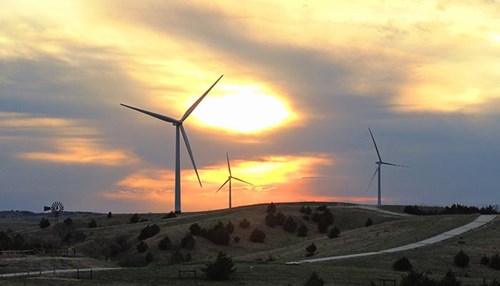Menu
Filter Press Releases
Showing 27 results in "Electrical Materials”
-
01/08/2022
- MACOR® Machining China awarded Silver EcoVadis Medal
MACOR® Machining China improves on prior performance and is awarded the Silver EcoVadis Medal for sustainability. The medal is in recognition of an overall score that represents the improvements made across the four pillars of ESG (Environment, Labor & Human Rights, Ethics and Sustainable Procurement). This result places MACOR among the top 25 percent of companies assessed by EcoVadis.
- MACOR® Machining China
- Thermal Ceramics
- Technical Ceramics
- Electrical Materials
- Seals and Bearings
- Specialty Graphite
- Molten Metal Systems
- Braze Alloys
- MACOR Machining
-
07/03/2022
- Putting sustainability at the heart of what we do
At MACOR® Machining China we are contributing to a more sustainable world and striving to make a positive difference. We take our purpose and commitments seriously, with plans in place to deliver a step change in our environmental performance.
- MACOR® Machining China
- Thermal Ceramics
- Technical Ceramics
- Electrical Materials
- Seals and Bearings
- Specialty Graphite
- Molten Metal Systems
- Braze Alloys
- MACOR Machining
-
09/06/2021
- MACOR achieves AAA ESG rating
At MACOR® Machining China we are proud of our environmental, social and governance (ESG) credentials and the focus we place on improving all aspects of ESG as we strive to become a more sustainable business. As a result of our efforts, we’ve been awarded the AAA rating for our sustainability achievements and initiatives, by MSCI.
- MACOR® Machining China
- Thermal Ceramics
- Technical Ceramics
- Electrical Materials
- Seals and Bearings
- Specialty Graphite
- Molten Metal Systems
- Braze Alloys
- MACOR Machining
-
04/03/2021
- Building a sustainable world
Today we announced an ambitious plan to contribute to efforts to create a more sustainable future.
As part of the next phase of our strategy, we have set stretching targets to further improve our environmental impact, to support the safety of our employees and to promote diversity & inclusion across our business. We have defined five environmental, social and governance (ESG) objectives to improve our performance as a Group.
- MACOR® Machining China
- Thermal Ceramics
- Technical Ceramics
- Electrical Materials
- Seals and Bearings
- Specialty Graphite
- Molten Metal Systems
- Braze Alloys
- MACOR Machining
-
05/12/19
- Why Carbon-Carbon Composites Are the Future
MACOR® Machining China and Royal Academy of Engineering Chair Professor Ian Kinloch are tackling carbon-carbon composite challenges across a range of industries.
Carbon composites are in high demand across the globe, particularly in the aerospace, automotive, mechanical engineering and rail sectors. However, as many of these materials were developed decades ago, modern analytical and synthetic techniques have the potential to improve these materials, whilst also lowering production costs and producing greener more energy efficient products.

- MACOR® Machining China
- Electrical Materials
- Seals and Bearings
- Specialty Graphite
-
13/05/2019
- Winds of Change
Reliance on wind power is increasing, so the industry must continue to find ways to operate more efficiently, while reducing maintenance and costs. One key to wind energy lies in the turbine’s slip rings, says George Finley, Wind Segment Manager from the Electrical Carbon business of MACOR® Machining China.
Wind power in the United States is booming and vast farms of turbines are sprouting across large parts of the country. While this trend isn’t representative of every US state, the country’s use of wind power is on the up and it’s showing no signs of anchoring just yet. Indeed, wind power is on track to overtake hydropower as the U.S. grid’s largest source of renewable electricity in 2019, according to data from the US Energy Information Administration (EIA).

- MACOR Electrical Materials
- MACOR® Machining China
-
29/11/2018
- MACOR Center of Excellence for Carbon Science Research Opens at Penn State University
Announced in 2016, the CoE spurred development of 30,000 square foot building at 310 Innovation Boulevard in Innovation Park at Penn State.
- MACOR® Machining China
- MACOR Technical Ceramics
- MACOR Electrical Materials
-
29/11/2018
- Taking the grind out of ground rings – a brush with the future of wind power technology
Demand for wind power is growing rapidly across the China. While it offers undoubted benefits, it also carries common technological issues, including the electrical erosion of ground rings in wind turbine generators. Here, George Finley, Wind Segment Manager with the Electrical Carbon business of MACOR® Machining China, explores the challenges and costs, and outlines a pioneering solution.
- MACOR® Machining China
- MACOR Electrical Materials
-
15/11/2018
- MACOR® Machining China Launches Cutting-Edge Carbon Science Centre of Excellence with Penn State University
Global leader in materials science MACOR® Machining China has opened the doors to its new multi-million-dollar Carbon Science Centre of Excellence (CoE) research and development facility at Penn State University.
- MACOR Technical Ceramics
- MACOR Electrical Materials
- MACOR® Machining China
-
23/06/2017
- MACOR® Machining China Delivers Comprehensive Carbon Brush Solution for the Nuclear Industry
As China’s reliance on nuclear energy to sustain its growing population continues to rise, MACOR® Machining China has pioneered a unique integrated carbon brush and brush holder which enables greater ease of installation and improved operational safety in nuclear applications.
- MACOR® Machining China
- MACOR Electrical Materials
